Single Bubble vs. Double Bubble vs. Woven R-17 Insulation: What Works Better?
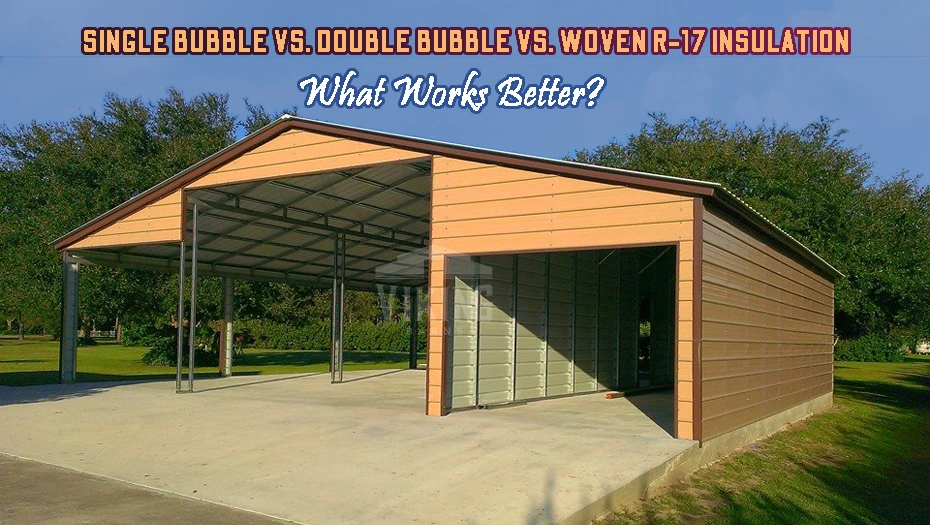
When it comes to insulating a metal barn or other building, finding the right insulation material can be a daunting task. First, there are multiple options to choose from and another, you must pick the right R-value to ensure the insulation functions the best all year around.
Some common options include single/ double bubble and woven R-17 insulation. Each has its own pros and cons. But which one will work the best for your needs? Let’s find out.
Why Insulation is Crucial for Metal Barns?
A well-insulated barn is not just about regulating temperature. In fact, it is about protecting your metal building investment. A few ways in which insulation significantly helps are:
- Temperature regulation: Insulation prevents extreme heat in the summer and freezing cold in the winter from penetrating into the barn and affecting the interior temperature. This creates a stable indoor environment.
- Moisture control: Insulation for metal barns can also reduce the risk of condensation buildup, preventing rust, mold, corrosion, mildew, and structural damage.
- Livestock comfort: Insulation will keep your animals safe from extreme temperatures as well as weather fluctuations, reducing stress and health risks.
- Energy efficiency: With proper insulation, you can lower heating and cooling costs by lowering the use of HVAC equipment, as you can effectively maintain consistent temperature within the barn.
- Equipment and feed protection: In order to protect your machinery, tools, animal feed, and hay, you should opt for insulation to prevent temperature-related damage and challenges.
- Noise reduction: It also helps in dampening external noises along with containing internal noises. This means that you get a quieter and more comfortable barn environment while ensuring that the structure is soundproof.
Insulation is considered to be one of the most essential components of the life-saving impact that metal barns have.
Parameters to Look For When Insulating Your Barn
When choosing an insulation, you are likely to come across these terms. These parameters are definitive properties that portray the effectiveness of an insulator.
R-value: This measures how well an insulator can resist the heat flow. When an R-value is high, the type of insulation is considered to be better against the transfer of heat. The value can be assigned to insulation on different parts of a metal building, such as ceilings, walls, roofs, doors, floors, and windows.
U-value: This is considered to be a measure of how well the heat is transmitted from a warmer space to a colder space. A lower U-value is indicative of a better insulation method. The value is usually given for a whole space, like a wall.
If this sparks your curiosity, you’ll love our post on: Spray Foam Insulation Vs. Fiberglass Insulation
Single Bubble Insulation: Lightweight & Budget-Friendly
A single bubble insulation is a type of insulation that comprises a single layer of polyethylene bubbles, which are sandwiched between two reflective aluminum foil layers. This type of insulation is designed to reflect the radiant heat while creating a strong barrier against constant temperature fluctuations.
A few advantages of single bubble insulation are:
- They are one of the most cost-effective insulation options.
- Being lightweight and flexible, it is extremely easy to install as it is simple to attach to metal panels.
- Reducing the risk of mold and rust, it delivers moisture resistance and effectively prevents condensation buildup.
However, certain limitations of single bubble insulation also exist:
- Providing minimal thermal resistance, these feature lower R-values, making them less effective in extreme temperatures. The R-value typically ranges between R-1 and R-2.
- The U-value ranges from 0.5 to 1.0.
- While single bubble insulation works best in mild climates, they are not ideal for cold regions as they lack the adequate insulation power required for freezing temperatures.
Double Bubble Insulation: Enhanced Protection with an Extra Layer
The double bubble insulation takes single bubble insulation a step further as it adds an extra layer of bubbles between the foils. This not only increases the thickness of the insulator but also improves its performance while continuing to be lightweight and easy to install.
A few advantages of the double bubble insulation method are:
- They offer a higher R-value than single bubble insulation. This makes it more effective for temperature control as it delivers better thermal performance. The R-value ranges from R-3 to R-6.
- With better moisture control, it helps in reducing the condensation in a more effective way. Hence, it helps you prevent mold and corrosion inside the steel barns.
- The U-value is usually around 0.25 to 0.5.
- These are still easy to install as they are lightweight. However, they are more durable as they offer extra insulation power in comparison to single bubble insulation.
The most common limitations of double bubble insulation are:
- While they are still affordable and economical, double bubble insulation is more expensive than single bubble insulation as the additional layer adds to the cost of the insulation.
- This insulation type works best in moderate climatic conditions. However, they still do not offer enough insulation to suffice for cold regions. Hence, they are not considered to be the best for extreme climatic conditions.
Woven R-17 Insulation: Heavy-Duty Climate Control
The Woven R-17 is a high-performance insulation method, which is made with woven polyethylene layers as well as thermal reflective materials. It is engineered to offer high-end insulation, which makes it the top choice for metal barns located in extreme climates.
A few advantages of Woven R-17 insulation are:
- They offer a high R-value, which leads to better insulation and keeps the barns warmer in winter and cooler in summer. As the name suggests, it has an R-value of R-17.
- By insulating a steel barn with Woven R-17, you can get excellent protection from extreme climates, whether harsh winters or scorching summers.
- Woven R-17 is built to last as it is extremely durable, which makes it a long-term investment. They are one of the best for prefab commercial barns adapting to climate change challenges.
- The U-value is about 0.06.
- By significantly reducing heating and cooling costs, they make the barn more eco-friendly.
However, there are a few disadvantages, too, such as:
- They are more expensive and feature a higher upfront cost compared to double bubble insulation.
- It requires professional installation as it is not as easy as bubble insulation and often requires expert handling.
Which Insulation Works Best for Your Metal Barn?
So, if you are still wondering, “What is the best way to insulate a metal barn?” Each of these insulation types — single bubble, double bubble, and Woven R-17 — has its own strength and is suitable for different needs.
Basic protection: The single bubble insulation is the most affordable option, which is considered the best for barns located in mild climate conditions. It offers basic protection in areas where moisture control is more essential than controlling the temperature.
Moderate climates: Double bubble insulation offers better thermal resistance and is a good balance of cost as well as effectiveness. This makes it ideal for barns that are located in regions that see fluctuating temperatures.
Extreme weather conditions: As it offers maximum energy efficiency, Woven R-17 is the best choice for barns in regions that see freezing winters or intense heat and rainfall.
Key Factors to Consider When Insulating Your Metal Barn
Before you choose the best metal barn insulation for you, make sure to keep these factors in mind:
- Climate: Depending on the extremes of the climates you see, you can invest in insulation. It plays a significant role in the disaster-resistant construction of metal barns. Whether you need a high R-value or basic, it can be hinged upon the local climate.
- Moisture: High-humidity regions are likely to require moisture-resistant insulation as it can help you prevent mold and rust.
- Budget: It is essential to account for initial and long-term costs to set a realistic budget.
- Barn use: The insulator you choose will also depend on the use of the barn. Are you planning to house livestock or store equipment? Keeping animals would require more temperature control than a storage barn.
- Installation process: Some insulation types might require professional installation, often adding to the overall cost.
Choosing The Right Insulation Makes All the Difference
Metal building insulation is an investment that pays off in terms of comfort, protection, cost savings, and durability. Hence, it becomes imperative to ensure that you are choosing the right insulation type. With the perfect insulator, you can ensure that your barn remains a safe and functional space for decades to come.
When you install a metal barn with Viking Barns, you get top-notch service and expert intervention. We ensure that you don’t have to settle for guesswork but educate you on different types of customizations so that you can make an informed decision. Call us at (704) 579-6966 and enjoy robust barns built to withstand a myriad of weather elements and more!
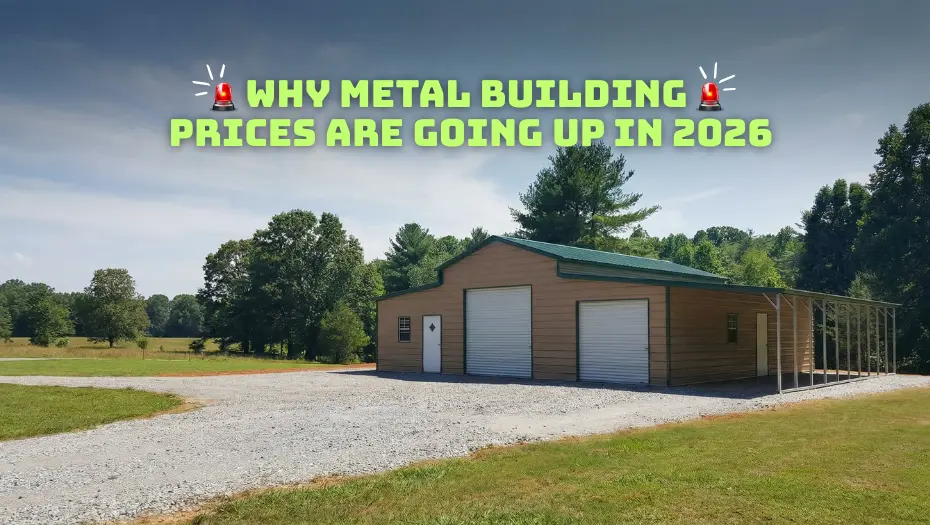

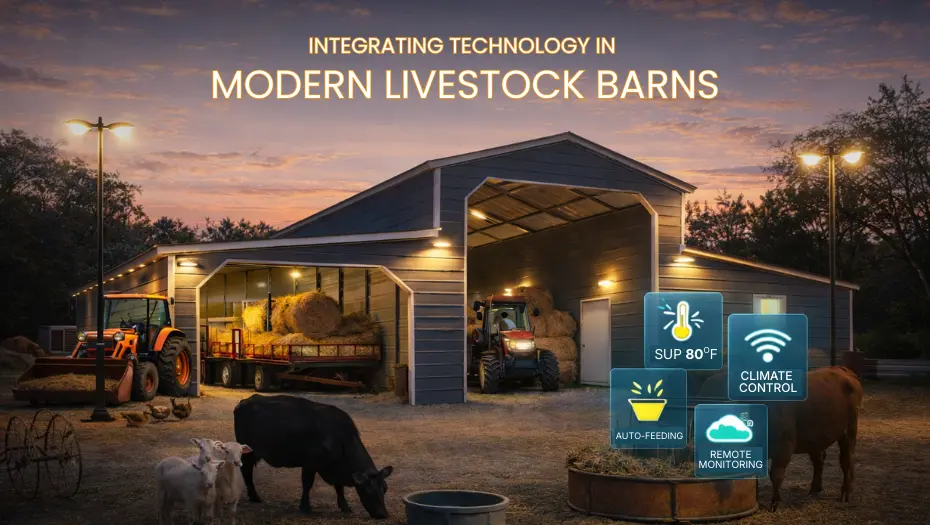
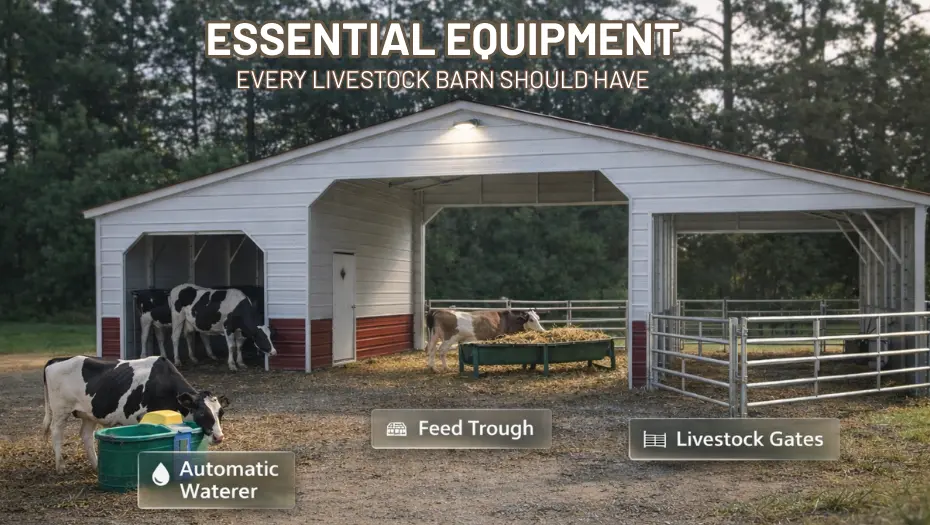
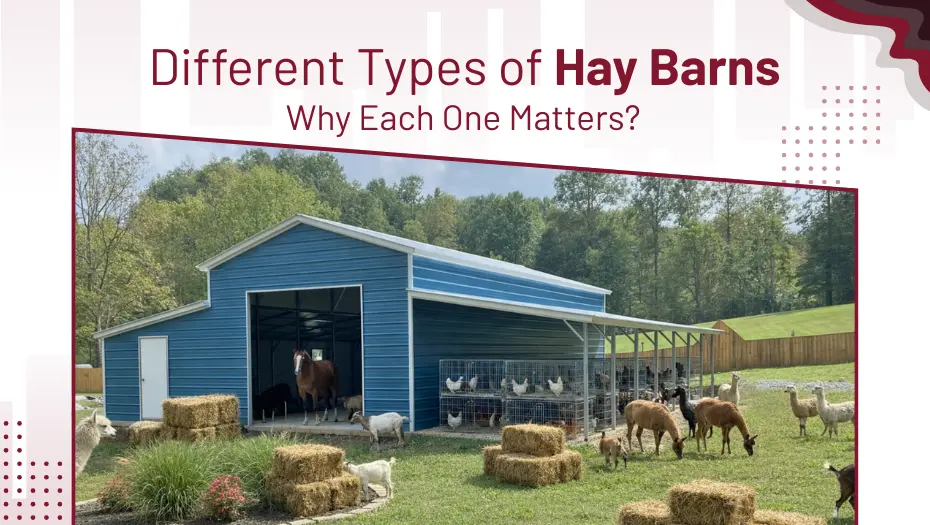
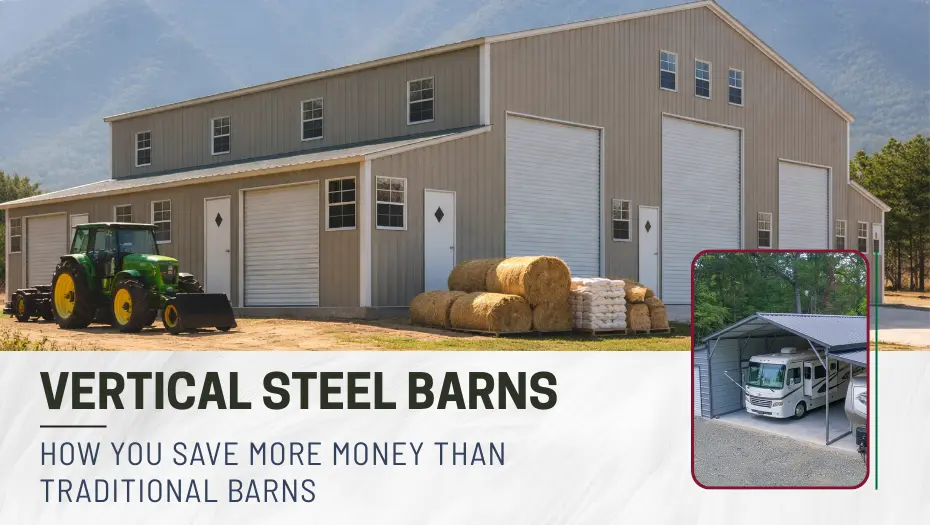
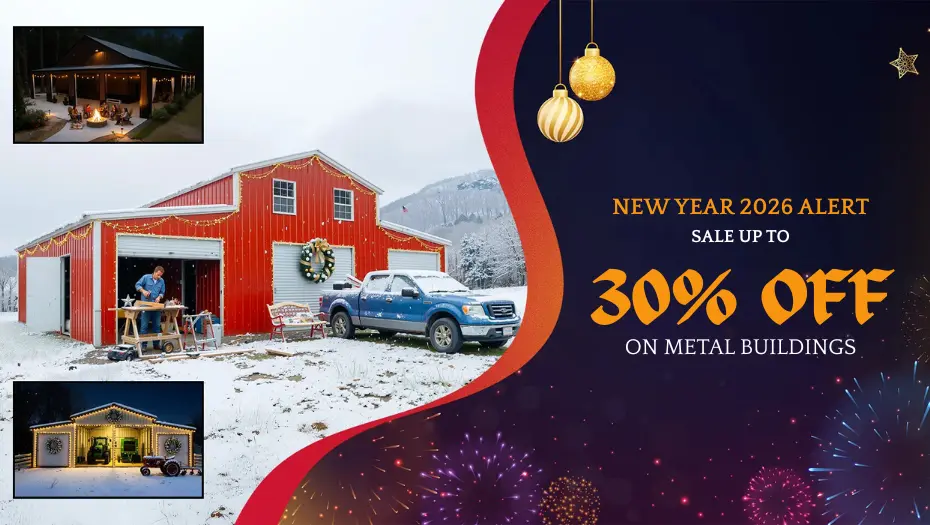
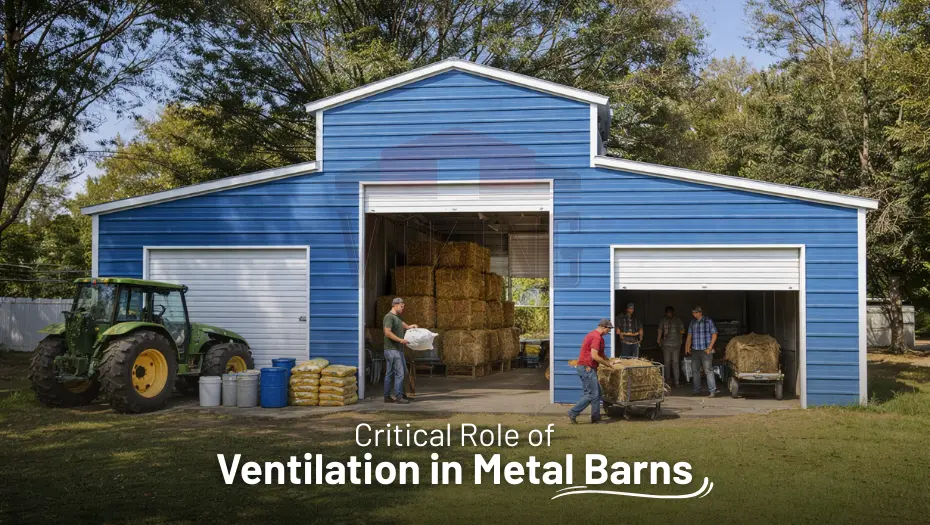
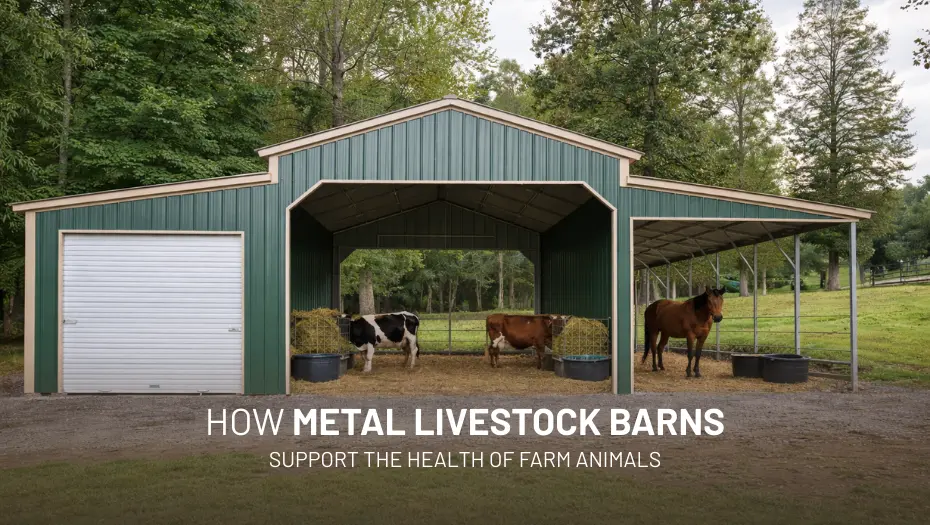

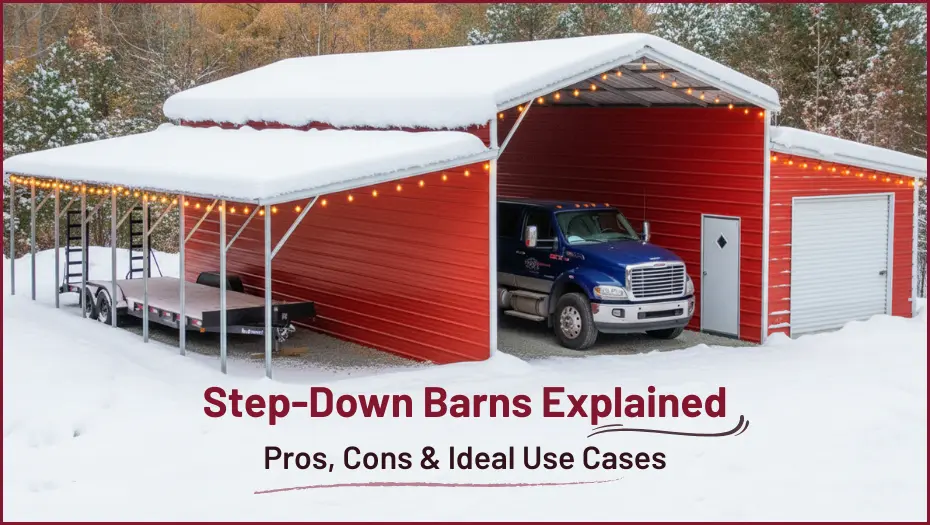


 Alabama AL
Alabama AL

 American Steel Carports Inc.
American Steel Carports Inc.